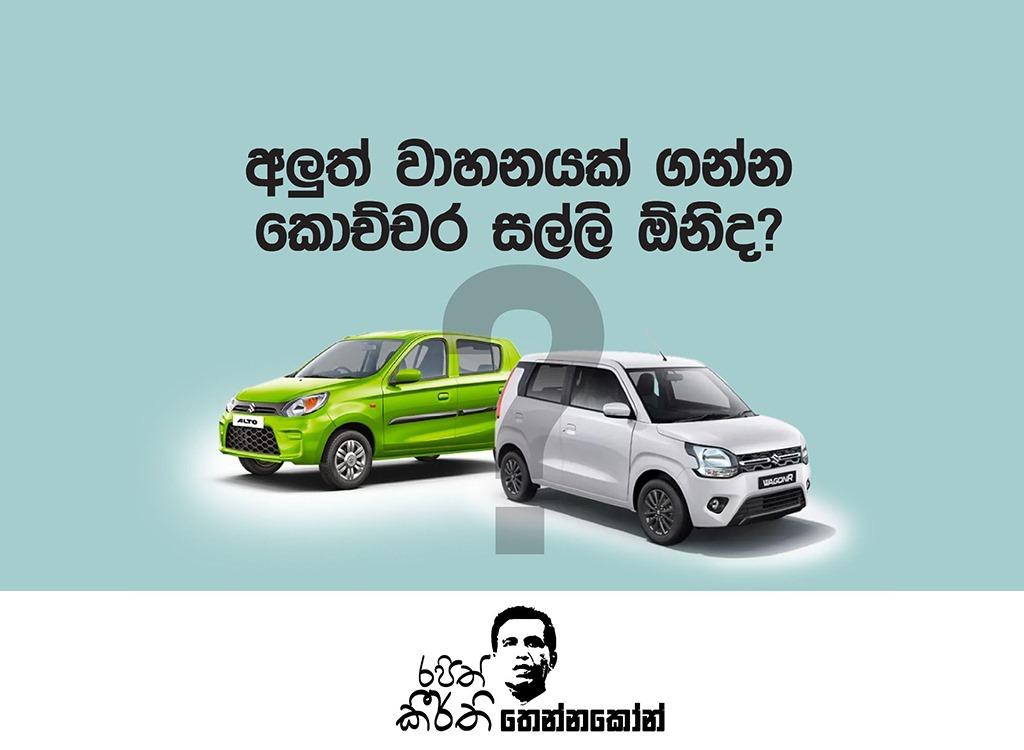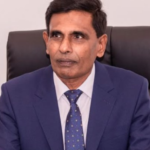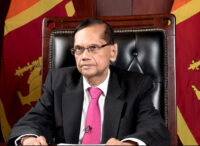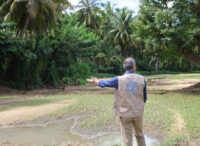The government has provided an opportunity to buy a new vehicle. However, the practical application will be as follows.
- Under the new system, the price of a new imported vehicle has been set at such a level that it is not easily accessible to government employees, mid-level businessmen, and professionals.
- Under the new tax system, leasing companies and vehicle importers will make huge profits. It will also lead to opportunities to obtain substantial financial benefits through fraudulent documentation processes.
- The price of used vehicles currently in the country will increase significantly.
According to the Gazette issued lifting suspension on vehicle imports to Sri Lanka , the practical application of the vehicle tax will be as follows.
No individual person can personally import any vehicle into the country. Only registered institutions in the Department of Motor Vehicles can import vehicles. (Vehicles must be imported through a third party. For example, a son living abroad cannot send a vehicle to his parents or wife.)
- One person cannot purchase more than one vehicle.
- You must pay full tax on the vehicle you purchase, even if you are a ”government employee” or a ”permit holder”. This means that the current duty-free vehicle license will be a blank piece of paper.
- The Ministry of Finance has increased the duty-free value of vehicles subject to ”luxury tax” from Rs. 3.5 million to Rs. 5.5 million, i.e. whenever the initial value of a vehicle you purchase exceeds Rs. 5.5 million, you must pay a luxury tax on it. (The minimum price limit has been increased in line with the appreciation of the dollar in 2019. This will increase the government’s tax revenue.)
- The customs duty has been increased from 20% to 30% (with a 50% surcharge).
- The total tax is generated by calculating an 18% VAT on the sum of all taxes, namely 20% on the duty-free value + 10% surcharge + Excise (Special Provisions) Duty (XID).
Simply put, the tax increase compared to 2019 will be 70% higher.
When analysed in terms of state fiscal policy, it is in line with the conceptual goal of spending about a billion dollars to generate a huge ‘rupee revenue’ in taxes.
This will allow the government to significantly increase its tax-to-GDP ratio.
The price of a vehicle will increase by about 20% more than the planned tax amount in July 2024, when the time frame for allowing vehicle imports was decided. (It will vary depending on the profit of the vehicle importer and the value of the dollar.)
Who will gain from the this?
In 2019, the tax amount for a vehicle was determined based on the capacity and luxury tax. (Forged documents cannot be prepared based on the CC value.)
Therefore, the effective tax necessarily went to the treasury. When the initial decision to allow vehicle imports was made in July 2024, the XID or the CC value was in place.
However, under the new system, only the excise duty (XID) will be determined based on the CC value.
The 20% duty-free value, the 10% surcharge on it, and the 18% VAT on its sum will be calculated on the declared CIF value of the vehicle. The duty-free price or CIF value is an easy way to scam.
For example, a vehicle worth Rs. 5 million can be prepared with a CIF price of Rs. 3 million. Then, the government’s three taxes, the basic tax, surcharge, and VAT, will be reduced.
Calculating the tax on the CIF value instead of the engine capacity will be a huge loss to the treasury. The benefit of this will entirely go to the vehicle importers. The disadvantage will be to the treasury and ultimately to the people. No matter whose interest the change in the vehicle tax system is for, it is a means to open the path for corruption again.
The vehicle import system is a mechanism that the government has used to tax the consumer rather than allow people to acquire vehicles.
It is a path specially designed to create enormous wealth for a select group of importers.
- The author is former Governor of Sri Lanka.











Leave a comment